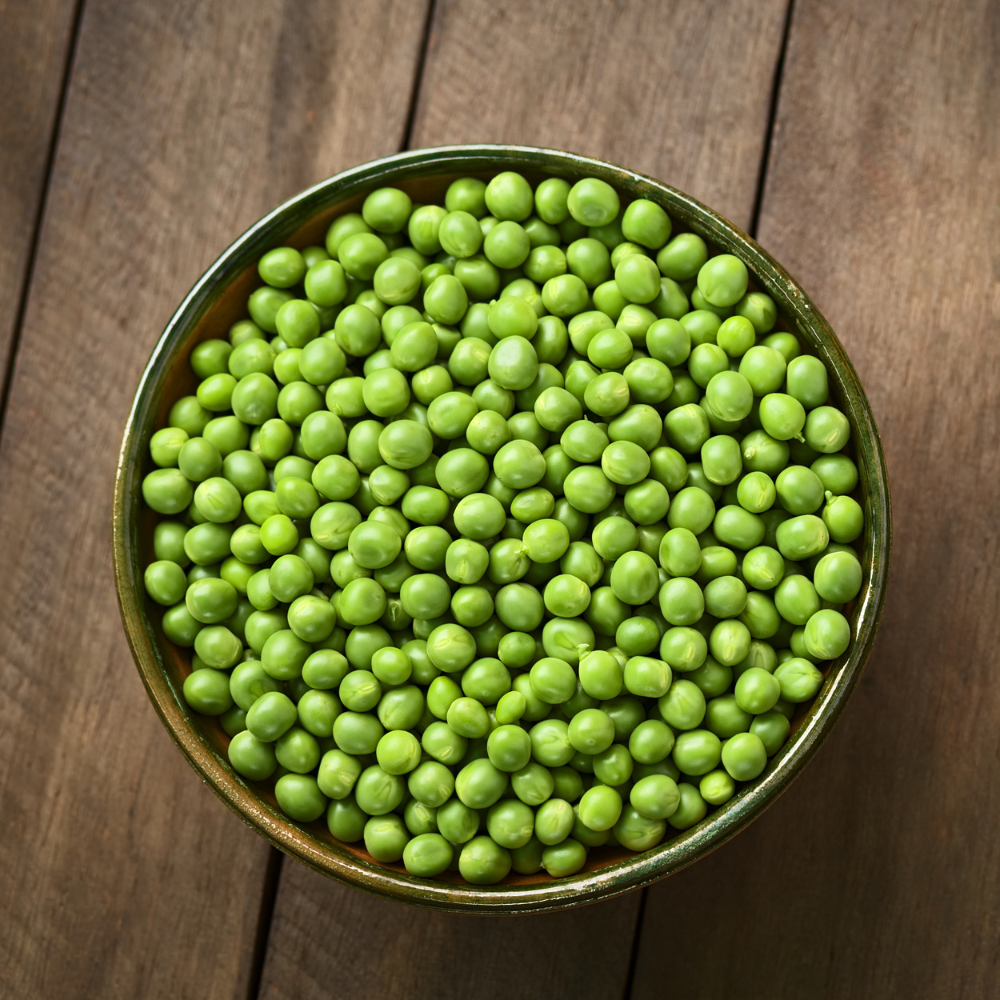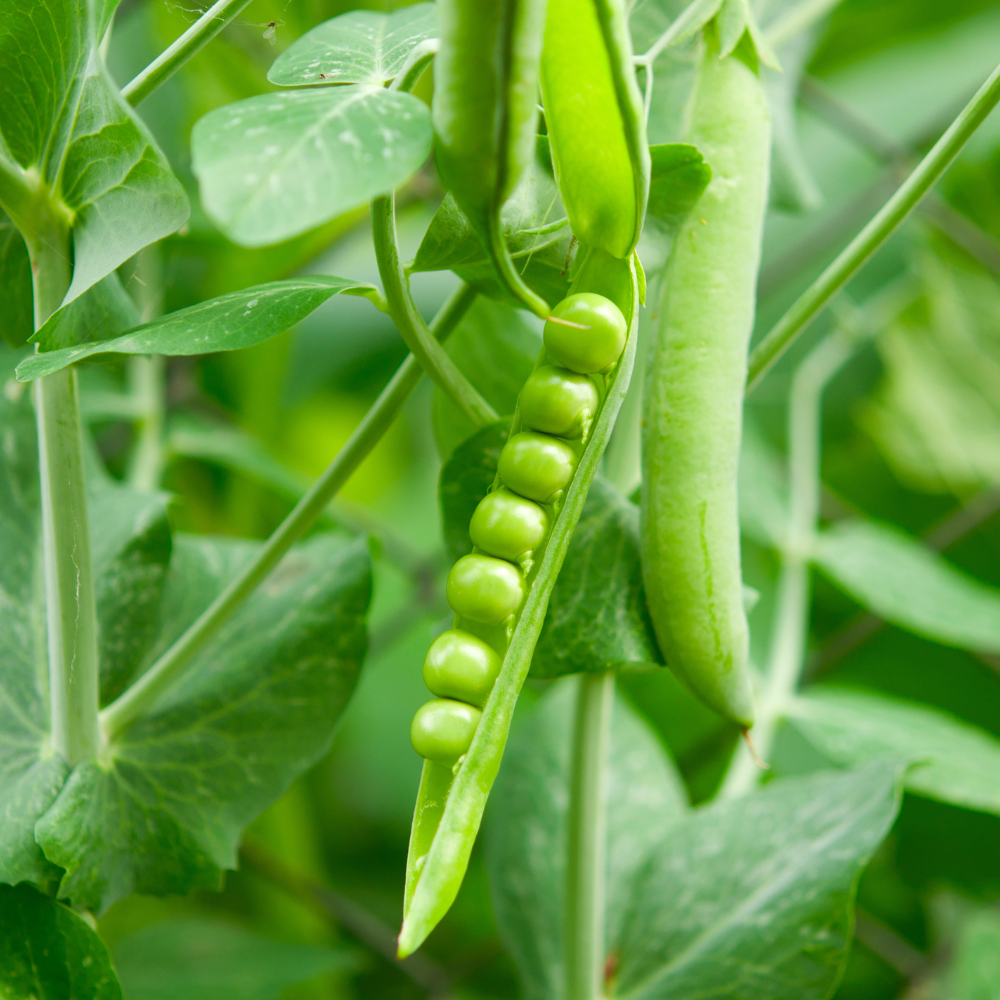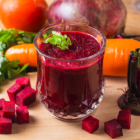Organic peas benefits are surprising! Peas, small, green Peas are the best thing you can do to your body. Packed with nutrients, these small green balls can do wonders for your wealth. Eating organic peas is a treat for the soul and thus shall be added to the diet!
Organic Peas Benefits:
Peas offer numerous health benefits due to their rich nutrient profile. Here’s a detailed breakdown of the benefits of eating peas:
High Nutrient Content:
Peas are a great source of vitamins and minerals like vitamin C, vitamin K, and folate, which support overall health. Vitamin C boosts the immune system, while vitamin K plays a vital role in bone health and blood clotting.
Rich in Fiber:
Peas are packed with dietary fiber, which aids in digestion, promotes regular bowel movements, and helps prevent constipation. Fiber also contributes to heart health by helping to lower cholesterol levels.
Plant-Based Protein:
Peas are an excellent source of plant-based protein, making them a valuable food for vegetarians and vegans. Protein is essential for muscle repair, cell growth, and maintaining a healthy immune system.
Low in Calories:
Despite their nutrient density, peas are low in calories, making them a great option for weight management. They provide a sense of fullness without excessive caloric intake, helping to control hunger.
Antioxidant Properties:
Peas contain antioxidants, such as flavonoids, carotenoids, and vitamin C, which help protect the body from oxidative stress. Antioxidants reduce the risk of chronic diseases like heart disease and cancer by neutralizing harmful free radicals.
Supports Heart Health:
The fiber, potassium, and magnesium found in peas help regulate blood pressure and cholesterol levels, supporting cardiovascular health. Potassium helps balance sodium in the body, reducing strain on the heart.
Blood Sugar Regulation:
Peas have a low glycemic index and a good mix of protein and fiber, making them helpful in managing blood sugar levels. This makes them a suitable food choice for individuals with diabetes or those looking to prevent blood sugar spikes.
Eye Health:
Peas contain lutein and zeaxanthin, two antioxidants that support eye health by protecting against cataracts and age-related macular degeneration.
Bone Strength:
Peas provide essential nutrients like vitamin K, calcium, and phosphorus, all of which contribute to stronger bones and reduce the risk of osteoporosis.
Incorporating peas into your diet can enhance your health by delivering vital nutrients, promoting digestive health, and supporting heart and bone functions.
How to add peas to your diet to attain peas benefits for health?
Adding peas to your diet can be easy and versatile, as they can be incorporated into various dishes.

Here are some ways to include peas in your meals to attain peas benefits:
Salads:
Toss fresh or steamed peas into your salads for a nutrient boost. Peas add color, flavor, and a slight crunch, pairing well with leafy greens, nuts, and dressings.
Soups:
Peas are a common ingredient in vegetable soups, such as split pea soup or mixed vegetable broth. They blend well with other vegetables and add thickness and protein to the dish.
Stir-fries:
Add peas to stir-fries along with other vegetables like carrots, bell peppers, and onions. They cook quickly and add texture to the dish while blending well with soy sauce or other stir-fry sauces.
Pasta and Rice Dishes:
Stir peas into pasta or rice dishes like risotto or pilaf. They add a pop of sweetness and nutrition and mix well with creamy or tomato-based sauces.
Smoothies:
For a protein boost, frozen peas can be blended into green smoothies with spinach, banana, and almond milk. Their mild taste won’t overpower the smoothie.
Casseroles:
Peas can be added to casseroles like shepherd’s pie or chicken pot pie. They complement other ingredients like potatoes, meat, and sauces while increasing the dish’s nutritional value.
Snacks:
Roasted peas can be enjoyed as a healthy, crunchy snack. Simply season them with your favorite spices and bake until crispy.
Pea Hummus:
Use peas as a base for a unique hummus variation by blending them with olive oil, garlic, lemon juice, and tahini.
Side Dish:
Simply steam or sauté peas with butter, garlic, and herbs for a quick and nutritious side dish to accompany your meals.
Adding peas to your diet not only enhances flavor but also boosts the nutrient content of your meals.
Side Effects of Green Peas:
Though peas are highly nutritious, there are a few potential side effects of green peas or concerns when consuming them:
Bloating and Gas:
Peas contain complex carbohydrates like oligosaccharides, which can be difficult for some people to digest. This may cause bloating, gas, or discomfort, particularly for individuals with sensitive digestive systems or those not used to high-fiber foods.
High in Antinutrients:
Peas contain natural compounds like phytic acid and lectins, which are considered antinutrients. These compounds can interfere with the absorption of minerals such as iron, calcium, and zinc. For individuals who rely heavily on legumes like peas for nutrition, this might lead to deficiencies over time.
Allergic Reactions:
Some people may have legume allergies, including to peas. Though not common, allergic reactions can range from mild to severe and may include symptoms like itching, swelling, or difficulty breathing.
High Carbohydrate Content for Low-Carb Diets:
For individuals following a strict low-carb or ketogenic diet, peas may not be ideal because they contain more carbohydrates compared to other vegetables, potentially hindering their dietary goals.
Purines Content:
Peas contain purines, which can be broken down into uric acid in the body. For people prone to gout or kidney stones, excess consumption of purine-rich foods, including peas, may contribute to higher uric acid levels, potentially triggering flare-ups or complications.
While these disadvantages don’t affect everyone, moderation and mindful consumption can help minimize any potential issues associated with eating peas.
How are organic green peas different?
Organic and inorganic (conventionally grown) peas differ primarily in how they are cultivated and processed.

Here’s a comparison:
Farming Practices:
Organic peas are grown using sustainable farming methods without synthetic chemicals, pesticides, or fertilizers. Thus organic peas benefits are more than the normal peas. Instead, natural alternatives like compost, manure, and biological pest control are used. Inorganic peas are typically grown with the aid of chemical fertilizers, pesticides, and herbicides to increase yield and prevent pests.
Pesticide Residue:
Organic peas have little to no synthetic pesticide residue, making them a safer option for those concerned about chemical exposure. In contrast, inorganic peas may contain traces of chemical pesticides or herbicides used during cultivation, though these are regulated by government safety standards.
Nutrient Content:
Some studies suggest that organic vegetables, including peas, may have slightly higher levels of certain nutrients like antioxidants, vitamins, and minerals due to natural growing practices. However, the difference is generally small and inconsistent across all types of crops.
Environmental Impact:
Organic farming is generally more environmentally friendly, promoting biodiversity, soil health, and reducing chemical runoff into water sources. Conventional farming may lead to soil degradation, water contamination, and a loss of biodiversity due to the use of synthetic inputs.
Taste and Quality:
Many people believe that organic peas taste fresher and have a more robust flavor, possibly due to the absence of chemicals and the slower growth rate of organic plants. However, this is subjective and can vary depending on how both organic and inorganic peas are grown and processed.
Cost:
Organic peas tend to be more expensive than inorganic peas due to labor-intensive farming practices and lower yields. This higher cost can make them less accessible to some consumers.
In summary, organic peas are grown more sustainably and without synthetic chemicals, potentially offering cleaner and slightly more nutrient-dense produce, while inorganic peas may be more affordable but carry potential pesticide residues.




